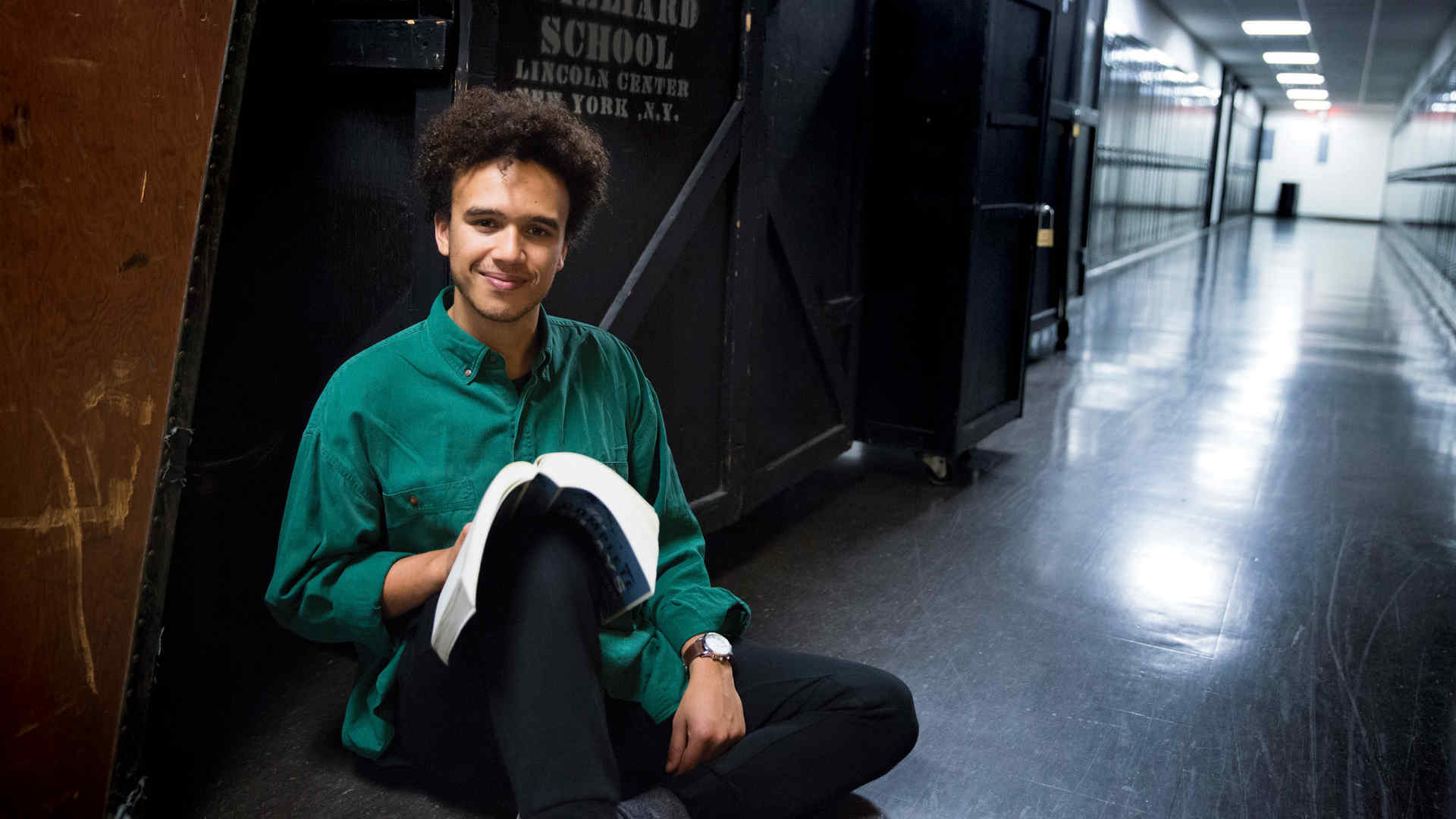
Third-Year Drama
What do 1930s Berlin and 1930s Philadelphia have in common? Well, time period, certainly. And the global destitution of the Great Depression. And here at Juilliard, Philadelphia and Berlin share the same ground for the first two of the Drama Division’s third-year shows for the 2018–19 season. They also share two actors: Shaun Anthony and myself, straddling two worlds more than 4,000 miles apart.
The shows I’m referring to are A Bright Room Called Day by Tony Kushner (playwright in residence 1991–92) and The Forbidden City by Bill Gunn. In Bright Room, a group of friends—artists, lovers, activists—grapples with the rise of Hitler and Nazism in post-WWI Germany while two removed observers, one from the 1980s and the other from the present, contend with the parallels to their own eras and theater’s role in fomenting change. In Forbidden City, an African-American family in Depression-era Philadelphia contends with class differences, domestic abuse, and the rearing of Black youth in the midst of trauma. In the first few days of rehearsal for each play, we’ve discussed the major themes in the plays and begun to dissect specific moments in the text. Here’s what happened in the second rehearsals for both, on Tuesday, September 11:
6:30pm
I begin the evening with the cast of The Forbidden City. When I enter the room, I am surprised that, instead of the circle of tables that I was expecting, I see an empty stage, the director and stage management behind tables, and a collection of chairs in a corner for the actors. Are we already starting blocking on day two? Dennis Hilton-Reid, our director, explains the game: Beat-Read-Play. Starting from the top of the play, we collectively agree on a beat; Dennis encourages us to think of a beat as a moment when the characters and the audience learn something new and significant. The actors in that section enter the playing space and act the scene with script in hand; then the actors put the script down and repeat the scene off-book, improvising the gaps in their memory. They repeat the Read-Play sequence one more time before we move on to the next beat. At first, being on our feet just two days into the rehearsal process feels jarring and premature. After the first 20 minutes, however, we feel the rhythm of this new way of uncovering a story. Dennis said later: “As we debate the beat we are actually engaging in script analysis. Working the beat on our feet leads to informed choices, playing off the other person, listening, and creating an active subtext.” I find the play unfolding like a gestating organism in front of my eyes, not fully formed but already breathing and throbbing. Soon, we are deep in discussion, examining the nature of mercantile life in 1930s Philadelphia, the poetry of Paul Laurence Dunbar, the nature of resourceful entrepreneurship, and—I feel a tap on my shoulder. Sydney, our stage manager, tells me she has received a text. Time to switch rooms.
8pm
I gather my script, water bottle, and pencil and travel down the hall and 4,000 miles to Berlin. I open the door to 312 to find the cast of Bright Room huddled around a square of tables, leaning in as classmate Liam McKenna unpacks the nature of observing a political enemy. Janet Zarish (Group 5), the director, has set up a more traditional table-work session, and they—now we—are knee-deep in the politics of a Germany on the edge of a fascist nightmare. I take my seat and skim the timeline passed to me by Emily, the Bright Room stage manager, while the conversation continues. Baz, an ex-socialist/ anarchist and sexual activist, attends a Nazi demonstration; does such voyeurism actually feed the opposition? Cast members began to relate the moral dilemma to today’s politics and to other historical periods, all the while diving deeper into the world of the Weimar Republic and the psychological journey of these characters. When real political trauma occurs, how does ideology, once the stage for intellectual jousting, sink deeper and fracture relationships on a personal and emotional level? More discussion. Tony Kushner’s play is dense with historical and ideological battles; our task, from the beginning, is to absorb the circumstances intellectually and emotionally. We learn that we’ll be receiving new pages from Mr. Kushner on Friday, mainly focusing on the interruptions and—ah, rehearsal is over.
I head back to the dressing room to gather information from the Forbidden City cast on their final discussions, the Bright Room cast for the beginning of the night, and continue to juggle these two worlds in my mind.
Third-year actor Hayward Leach holds a Shubert Scholarship